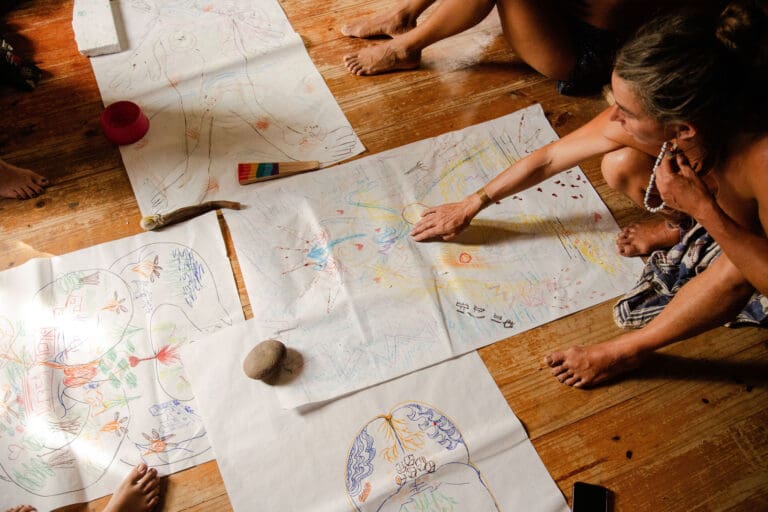Editor’s note: Dasra, an ORA Research Grant recipient, is a bridge between NGOs and funders and is a leading nonprofit systems orchestrator working with diverse stakeholders across the social impact ecosystem. Their ORA Research, led by Anusha Dias and Ami Misra focuses on philanthropy for India that address the global polycrisis.
Apart from being researchers and colleagues in the same organization, what truly connects us is a shared idea of critical optimism. Therefore, as we began the assignment of learning about this new term – ‘the polycrisis’ – we felt daunted. The term seemed to be laden with a “doom and gloom” narrative. However, our critical optimism enabled us to acknowledge the real challenges of the polycrisis, without shying away from the severity of the situation. It helped us maintain the belief in our collective resilience. This blogpost chronicles the stages in our learning journey.
Initial Dismissal
At first, we were tempted to dismiss the term ‘polycrisis’ as just another buzzword that originated in circles of privilege. Through our literature review, we learned of arguments stating that the term is oversimplified and disregarded the prolonged consequences of capitalism. Experts emphasized that the substantive drivers and implicit causes were not fully analyzed, calling the term as unclear and unnecessary, referring to it as merely history in process. Furthermore, literature was sparse from the perspective of the Global Majority and South. And when we approached experts for interviews, several of them had not heard of the term or felt uncomfortable commenting about it. This brought us to a staggering dismissal of the term itself. However, we did not want to give up and continued our research process.
Research Awakening
As we delved deeper into research, its significance became undeniable. We learnt that the polycrisis was increasingly being regarded as a proper noun, representing this specific era of global history. This mean that there exists a single polycrisis, occurring in the Anthropocene (i.e., the current era) which is shaped not by geological and universe-led processes, but instead by human meddling. The polycrisis today is marked by an accelerated pace, driven by human impact, and an overwhelming breakdown of multiple systems all at once. This era combines antithetically both vast material prosperity and inequality that has brought us to the brink of an ecological and systemic breakdown. It is an unprecedented phase in history, distinct from any previous experience, recorded in civilization.
Grappling with Complexity
The sheer scale and inter-connectedness of the polycrisis overwhelmed us. The polycrisis refers to multiple interconnected crises simultaneously, across local and global contexts. These crises can be economic, political, environmental, technological, or societal. The theory espouses that these interacting crises produce harm greater than the sum of those crises would produce in isolation if their systems and roots were not intertwined. We resonated deeply with the Cascade Institute’s explanation on the polycrisis – suggesting that it significantly degrades humanity’s prospects. Threats contributing to the polycrisis could include climate change, inequality, or social unrest. This concept felt like the coming together of everything we were feeling since the pandemic.
Finding Meaning
As intermediaries in the philanthropic ecosystem, we sit between the seemingly distant worlds of funders and grassroot changemakers. On one side, we interviewed NGO leaders, researchers and practitioners who are at the forefront of building sustainable solutions with communities. On the other hand, we spoke to philanthropists – individuals who come from diverse career backgrounds, disciplines, and family legacies, investing their time and resources to change the narrative. We learned that even though the term ‘polycrisis’ hadn’t gained consciousness among the stakeholders – many formed an instant connection with its meaning. Its resonance represented a spark of potential for innovation and collaboration, away from linear efforts.
In our discussions, a burning question arose: what did the polycrisis look like in our part of the world? Most of the experts and civil society leaders we connected with reminded us that marginalized communities have always been at the center of cascading catastrophes. The polycrisis was not a new experience for them. In the Global Majority, marginalized communities have always found methods to resist and persist through the complex and tremendous hardships. Amidst threatened ecosystems where survival is the biggest challenge, adaptation becomes necessary. This resilience offered valuable lessons for navigating the global polycrisis.
Taking Action
Now, motivated by this newfound understanding, we began to explore viable ways forward. Philanthropy is long-term patient risk capital. Therefore, it has been a backbone in amplifying innovative solutions to multi-layered issues that are typically tinkered in small, resource-pressed contexts, and driven by local leaders. In India’s history, philanthropic capital has been propelling systemic change by building robust institutions and supporting community leaders or stewards. The polycrisis needs more of this flexible and intentional philanthropic resourcing. Our “eureka moment” came from the realization that we could learn from the practices of contemporary Indian philanthropists. This helped us find hope amidst the doom and gloom narrative. We discovered philanthropic practices that can help build collective resilience.
As Tamzin Ratcliffe, of the Impact Trust and Commonweal’s Resilience Funders Network has written, “Meaningfully tackling the polycrisis is about fundamentally transforming the way we do things. It is about building collective resilience based on regenerative systems and fostering radical hope that is essential for both our collective – and individual – survival.”
Navigating Forward
The polycrisis is a wake-up call to acknowledge unequal power dynamics. Our research focused primarily on philanthropy and civil society. Critics highlight the need to ground the polycrisis in historical perspectives, acknowledging generations of marginalized communities enduring oppression and cascading crises. For responding to the polycrisis, the power dynamics behind philanthropy must change. There is a need for philanthropic preparedness to acknowledge inequality, embrace flux, and assume accountability. This transformation can be initiated through seeing philanthropy as sharing of resources and acknowledging its inextricable link with inequality. Sharing power, privilege, and resources with trust and patience in communities as well as planetary systems can help create collective resilience.



